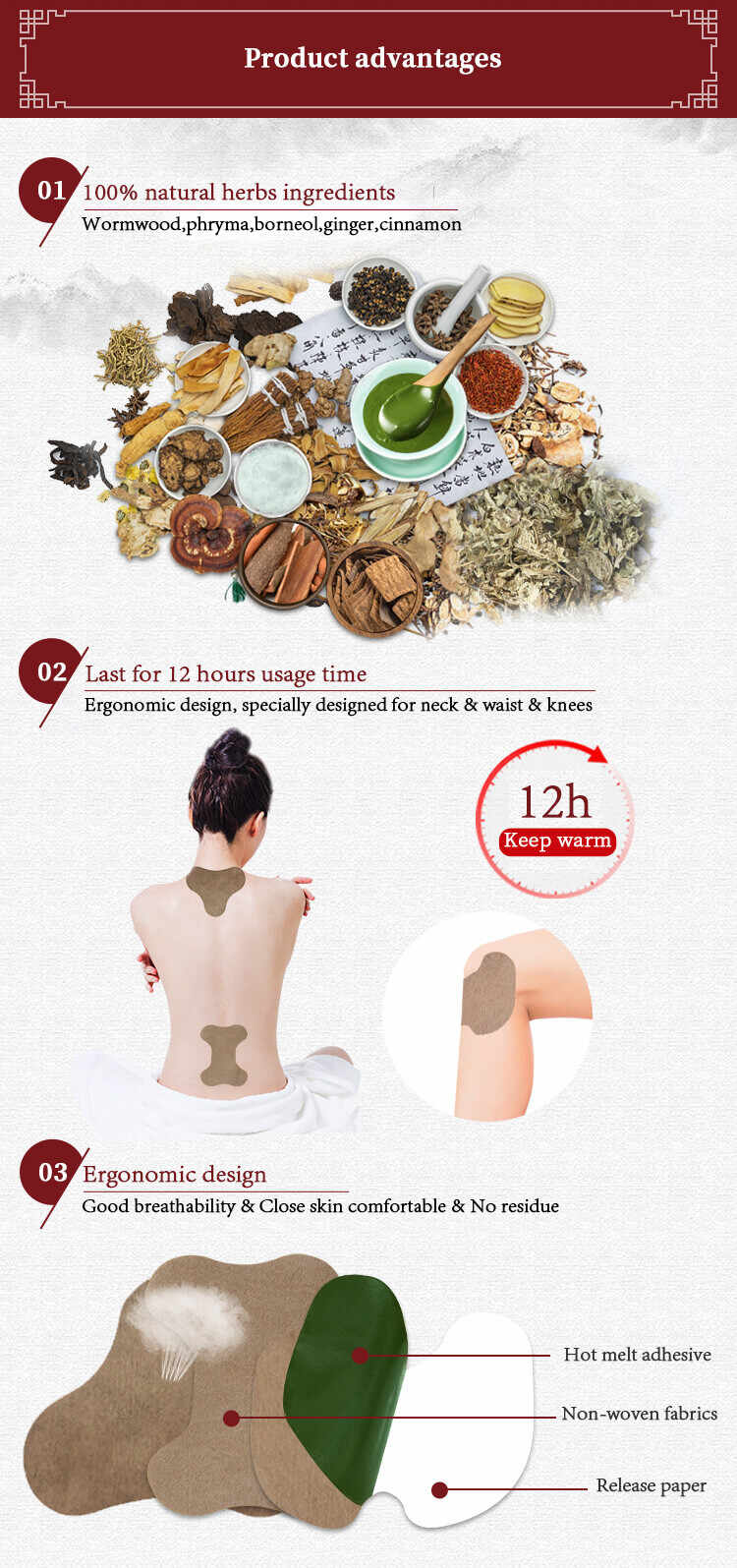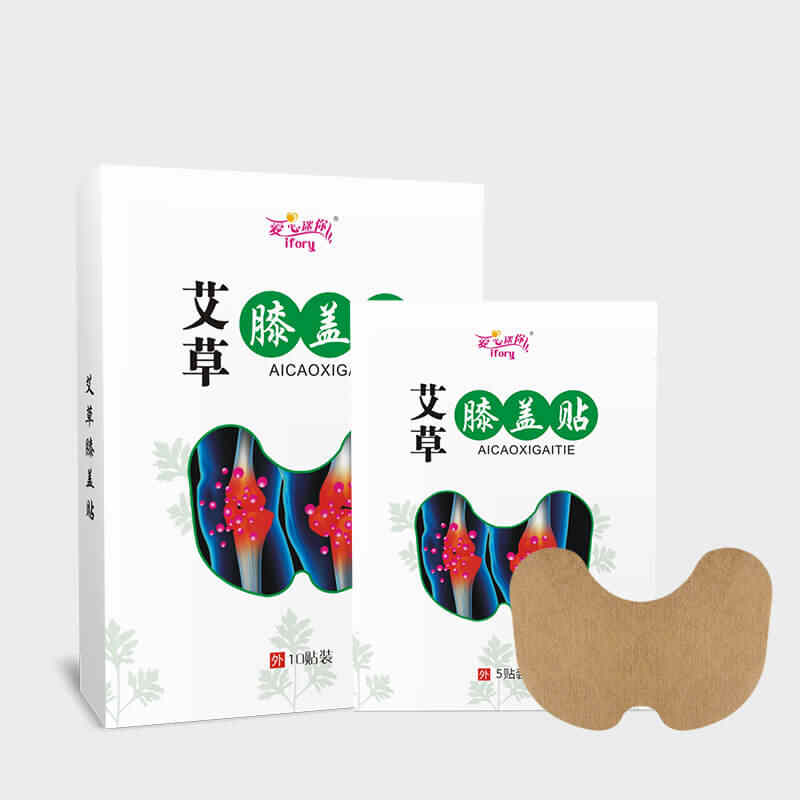Why Should B2B Clients Work with a Knee Pain Patches OEM?
The demand for pain relief products, including knee pain patches, continues to grow worldwide. Businesses looking to enter this lucrative market need a reliable partner to ensure product quality, regulatory compliance, and competitive pricing. This is where working with a Knee Pain Patches OEM (Original Equipment Manufacturer) becomes essential. But why should B2B clients partner with a Knee Pain Patches Manufacturer instead of developing their own products? In this article, we will explore the key advantages of working with a Knee Pain Patches OEM and why it is a smart choice for businesses.

1. Understanding the Role of a Knee Pain Patches OEM
A Knee Pain Patches OEM is a manufacturer that produces knee pain patches on behalf of other businesses. These manufacturers offer a variety of services, including formulation development, production, packaging, and private labeling. By partnering with an OEM, businesses can bring high-quality knee pain patches to market without investing in manufacturing infrastructure.
2. Benefits of Partnering with a Knee Pain Patches OEM
A) Cost Efficiency and Reduced Investment
Setting up an independent production line for knee pain patches requires a significant investment in machinery, raw materials, workforce, and regulatory approvals. By working with a Knee Pain Patches OEM, businesses eliminate these costs and gain access to an established production facility, ensuring lower manufacturing expenses.
B) High-Quality Manufacturing Standards
Reputable Knee Pain Patches Manufacturers adhere to strict quality control measures, ensuring that all products meet industry regulations. Many OEMs hold certifications such as:
GMP (Good Manufacturing Practice)
ISO (International Organization for Standardization)
FDA (Food and Drug Administration) compliance
These certifications guarantee that the Knee Pain Patches OEM follows best practices in formulation and production, delivering high-quality products to B2B clients.
C) Faster Time to Market
Working with a Knee Pain Patches Supplier that specializes in OEM manufacturing allows businesses to launch their products much faster than developing their own production facilities. The OEM handles everything from ingredient sourcing to packaging, streamlining the process and reducing time-to-market.
D) Customization and Branding Opportunities
B2B clients have different needs, whether they require Private Label Knee Pain Patches or fully customized formulations. Knee Pain Patches OEMs offer flexibility in:
Custom Knee Pain Patches formulations (e.g., herbal, menthol, or medical-grade patches)
Private label branding, including logos and packaging design
Tailored patch sizes and adhesion strengths
This customization allows businesses to create unique products that align with their brand identity and target audience.
E) Access to Research and Innovation
A reliable Knee Pain Patches Manufacturer invests in R&D to improve product effectiveness and develop innovative pain relief solutions. By partnering with an OEM, businesses benefit from cutting-edge technology without having to invest in costly research themselves.
F) Compliance with Regulatory Standards
Navigating the regulatory landscape for medical and wellness products can be complex. A Knee Pain Patches Supplier with OEM capabilities ensures compliance with regional and international regulations, including:
FDA requirements for medical patches
EU safety and labeling standards
GMP manufacturing regulations
This reduces the risk of legal issues and product recalls, providing peace of mind for B2B clients.
G) Scalability and Business Growth
A Knee Pain Patches OEM allows businesses to scale production according to demand. Whether launching a new product or expanding to new markets, an OEM partner can adjust production capacity, ensuring a steady supply of high-quality patches without the constraints of in-house manufacturing.
3. Choosing the Right Knee Pain Patches OEM
A) Evaluate Industry Experience
Select a Knee Pain Patches Manufacturer with a proven track record in the industry. Look for experience in producing both Private Label Knee Pain Patches and Custom Knee Pain Patches.
B) Check Certifications and Compliance
Ensure the OEM holds necessary certifications such as GMP, ISO, and FDA approvals. These indicate a commitment to high-quality production and regulatory compliance.
C) Assess Product Quality and Formulation Options
Request product samples to evaluate quality, ingredient effectiveness, and patch durability. Choose a supplier that offers multiple formulation options tailored to different consumer needs.
D) Review Customization and Branding Capabilities
Determine whether the OEM provides customization services, including Private Label Knee Pain Patches and unique formulations. The ability to personalize packaging and ingredients is crucial for brand differentiation.
E) Analyze Production Capacity and Lead Times
Confirm that the Knee Pain Patches Supplier can meet your volume requirements and deliver products on schedule. Delays in production can impact business growth and customer satisfaction.
F) Consider Pricing and Minimum Order Quantities (MOQs)
Compare pricing structures and MOQs among different Knee Pain Patches OEMs. Select a supplier that offers competitive rates without compromising quality.
G) Review Customer Support and Communication
Strong customer support ensures smooth collaboration. Choose an OEM that provides clear communication, transparent processes, and responsive service.
4. Frequently Asked Questions (FAQs)
1. What is the main advantage of working with a Knee Pain Patches OEM?
The biggest advantage is cost efficiency, as businesses can access high-quality manufacturing without investing in their own production facilities.
2. Can a Knee Pain Patches OEM customize formulations?
Yes, many OEMs offer Custom Knee Pain Patches with tailored ingredients, sizes, and adhesion properties to meet specific business needs.
3. How long does it take to launch a product with a Knee Pain Patches OEM?
The timeline varies, but Private Label Knee Pain Patches can be ready within weeks, while Custom Knee Pain Patches may take months due to formulation and regulatory approvals.
4. Is working with a Knee Pain Patches Supplier better than manufacturing in-house?
For most businesses, working with an OEM is more cost-effective and efficient than setting up an in-house manufacturing facility.
5. What certifications should I look for in a Knee Pain Patches Manufacturer?
Look for GMP, ISO, and FDA certifications to ensure quality, safety, and regulatory compliance.
6. Can a Knee Pain Patches OEM handle private labeling?
Yes, reputable OEMs offer Private Label Knee Pain Patches services, allowing businesses to sell products under their brand name.
7. How do I choose between Private Label and Custom Knee Pain Patches?
Private Label is ideal for quick market entry, while Custom Knee Pain Patches provide a unique product tailored to specific customer needs.
Conclusion
Partnering with a Knee Pain Patches OEM is a strategic decision for B2B clients looking to enter or expand in the pain relief market. From cost savings and regulatory compliance to customization and scalability, an OEM provides a reliable manufacturing solution. By carefully selecting the right Knee Pain Patches Manufacturer, businesses can ensure product quality, brand differentiation, and long-term success in the competitive healthcare market.






